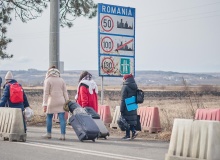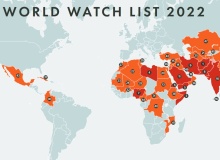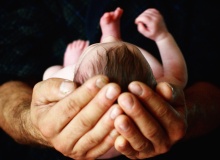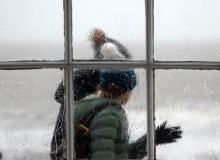


All of us have an outstanding talent scout. Someone who was able to give all he had in this world, even His own life, because of His love for us.

Evangelicals denounce that “gambling laws are outdated” and urge the government to take measures to solve a problem that is “a gateway to an addiction”.

The amendment that allows to take all abortion pills at home within the first 10 weeks passed by 215 votes to 188. “It will have dire consequences for women”, evangelicals say.
.jpg)
“By maintaining an effective and equitable conservation of 30% to 50% of Earth’s land, freshwater and ocean areas, society can benefit from nature’s capacity to absorb and store carbon”, says the latest IPCC report.

“Churches can help children with prayer, counseling and spiritual care”, say the World Evangelical Alliance and the Christian association World Without Orphans.

We should be realistic about contributing factors of burnout, sensitive to underlying stressors, and proactive in our care for one another.

Two million people have already fled Ukraine. Many are unaccompanied children who will suffer “a detrimental psychological impact”, Christian NGOs warn.

Some pediatric researchers estimate that 5 million minors have lost a parent or caregiver due to Covid-19. “The impact on a psychological level is very strong”, explains a Christian psychologist.

Tearfund encourages people to get supporters to sponsor them to wear only 10 items of clothes for one month and use the money to help vulnerable communities.

Pornography websites could be fined up to 10% of their annual turnover or be blocked. Christian associations welcome “a significant, but long overdue step in the right direction”.

No one ever apologises for mistakes which are typical of people who are undocumented, uneducated and ignorant in religious culture. An article by former Vice-President of Catalonia, Josep-Lluís Carod-Rovira.

Afghanistan is new at the top of the Open Doors WWL 2022. Discover the full list.

Spain as a model for research.

Some believe that “Europe cannot afford to dismiss energy sources” with low CO₂ emissions, but others warn that the decision of the European Union “is all about information for the capital markets”.

During our interview in Barcelona, Tutu even sang some hymns that he remembered being sung at peaceful anti-apartheid demonstrations and rallies.

Christmas has a profound relevance for everyone but especially for those who are going through times of suffering and crisis.

Maybe those shepherds, the wise men, Mary and Joseph, would take the baby in their arms and try to imagine what kind of Saviour he would be.

In Glasgow, it was so encouraging to see Christian young people across the world and especially in the UK taking this up and making their voices heard.

Anything that takes your mind off God destroys you.

Christmas services are just a few weeks away. Let’s take a new angle, dive into the Bible and preach with hearts spilling over.

Canal 21 is lead by pastor Guillermo Osorno, a presidential candidate in Nicaragua's recent elections. "The good news of salvation will never be silenced in our nation", they said.

Missiologist Jim Memory analyses the main trends in church and society. He will be one of the speakers at this week’s Lausanne Europe 20/21 gathering.

Miguel Wickham analyses the COP26 development, the challenges in addressing climate change, and the role of Christians.

The things for which we are grateful, are a helpful reminder to us in those darker moments that things can and are positive too.

We talk to Christian scientist Fernando Forgioni about the challenges of COP26. He hopes it will promote real measures to curb the climate change.

Las opiniones vertidas por nuestros colaboradores se realizan a nivel personal, pudiendo coincidir o no con la postura de la dirección de Protestante Digital.